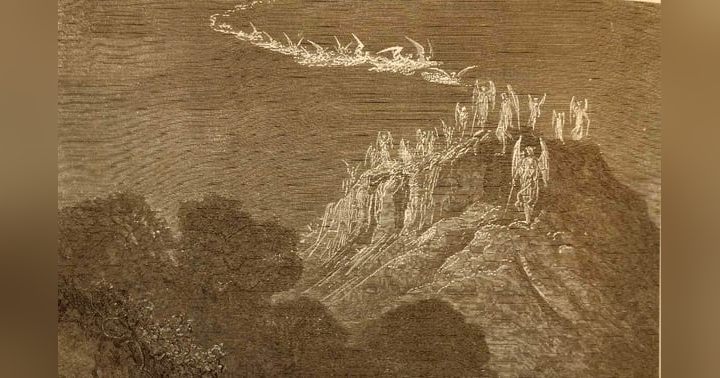And no, I don't (personally) take the day-age view nor any other concordist view of the days of creation. (I think there are multiple valid paths of interpretation, and I will absolutely defend a "literal" view, as that is faithful to the text, and I will also defend other views that take a high view of Scripture as inspired truth and can arise from legitimate interpretive methods---but the kicker with that is, the text and its meaning is inspired, not our interpretation of it. And a "plain" reading of the text might seem like the only option, but it's not, because the Bible remains a work of literature--a book--and there are certain things about books that are unique. For example, a book can write things with literary design and figurative language that is part of its deep meaning. These things don't have to go against a historical view, by the way, which I would also readily affirm. But again, "history" is done/seen/recorded in different ways at different times.)
This is a bit hard to explain in a single fb comment, but I think that the Bible was written in time, and that it's got a "dual" authorship. God is the ultimate author--but he used human authors who were in their particular time and context. I see no place in Scripture where God saw it fit to "correct" the science/historical understanding of the ancient person. He didn't mentally "download" an understanding of quantum physics into the human author any more than he "downloaded" an understanding of the solar system or shape of the earth.
I hold the door open for a "literal" seven day creation...but the more interesting thing to me, personally, is that the seven day creation has more than just a historical implication. The ancient person had a particular value to the number seven. It was equated to the divine, to "wholeness" or "completion." And the temple was dedicated in seven days! The purpose of a temple is for God to dwell in it/be present with humanity.
So whether or not the earth was created in seven days doesn't mean a whole lot to my understanding of who God is. But the idea that God created the whole cosmos to reflect the idea of his presence with us--that's a concept that means a great deal to me and helps me understand the purpose of creation and who God is in relation to it. The seventh day in Genesis didn't have the pattern of "closing" that the other days had...meaning that we could see it "not ending," in the sense that God is "resting" with humanity in dwelling with his creation.
It's these "textual links" in the story of the Bible that gets me very excited about seeing the underlying message. Whether or not it happened exactly this way in history means nothing compared to understanding that our lives, here, in Christ occur with the indwelling of the Spirit, and that our connection to him doesn't just start with Genesis 3, but starts with Genesis 1, right from the beginning.
I do take the creation account (and the rest of Genesis, etc) as literal--in the way that it was written, from the perspective of the ancient person, who was not doing modern science nor modern history. God was communicating far greater truths than dry historical fact. Finding those things that meant something to the original audience (but that we've kind of lost the thread in, because of our different culture and worldview) has helped me understand a lot of things about historical Christianity, including things like the Trinity.







